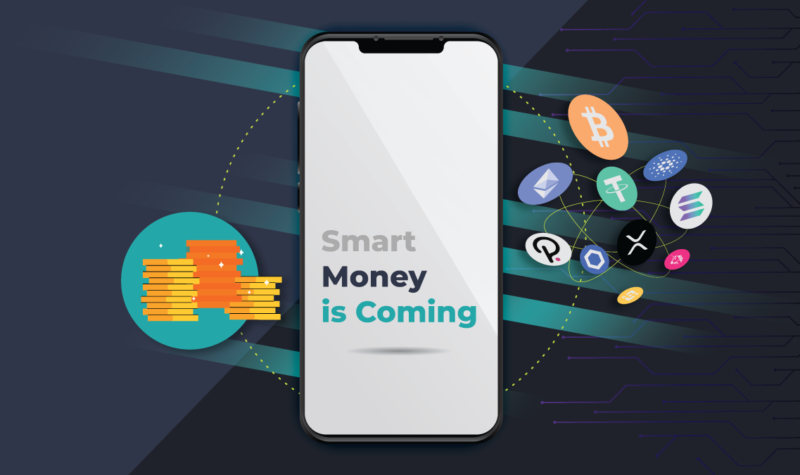Smart Money is Coming

Smart money is effectively digital cash controlled by code (‘smart contracts’) executed on blockchain technology. Its uses are limited only by human creativity. It is already here in the form of popular cryptocurrencies such as bitcoin, Ethereum and stable coins to name but a few. Smart contracts enable the transfer of money once a certain set of conditions are met, for example, if a flight is delayed then compensation can be paid immediately. These conditions are hard coded into smart contracts that the user has the option to agree to or not. The real-world applications of these developments are yet to go mainstream, but the interest shown by many central banks in its uses and likely inevitability of its widespread implementation will impact everyone.
Voltaire once said that paper money eventually returns its intrinsic value: zero. The fiat monetary systems upon which our world runs are likely now too well entrenched, politicised and interconnected to be replaced. They are in a constant state of flux, with governing policies adapting to conditions as interpreted by central bankers. We have already witnessed unconventional interest rate regimes with negative interest rates persistent in Japan and the Eurozone for most of the last 6 years. Calculating real interest rates where you account for inflation paints a much broader, global reality of financial repression.
Wherever there is crisis, the elixir of lower interest rates is relied upon to maintain confidence in the system. Political reaction then follows with often inadequately considered policy, whose unintended long term consequences often seed the next crisis. Since 1980 every peak in the interest rate cycle has been lower than the previous peak. Each lower peak leaves less room for manoeuvre – hence the zero interest rate policies of recent times whose diminished efficacy then spawned quantitative easing.
The current macro-economic climate is fraught with rising interest rates, designed to tackle rising inflation. If the interest rate cycle now starts to reverse its trend of lower highs without either a substantial reduction in global debt or a material increase in GDP driven by productivity and profitability, enormous economic hardship lies ahead.
The global debt problem is being addressed by financial repression – where nominal interest rates are kept lower than realised inflation. Negative real interest rates, in other words. This erodes the value of your money and inflates the debt away. This is the only politically acceptable route – politicians can blame external issues beyond their control and seek to maintain power with sound bites and short-term, reactive policy that appeal to the dominant themes of media focus for consumers to devour..
How does smart money or central bank digital currency (CBDC) fit in to this? It plays to the power of central banks needing to solve problems in any interest rate environment. This is because smart money can target specific people (wallets). It can have a time limit. It can be programmed to be spent on only certain products, with certain people. Central bank cash in this form dictates the terms. It is the start of a centrally commanded economy and diametrically opposed to any meritocratic version of capitalism that has enabled so much progress throughout the world.
We could be optimistic that the accountability a properly designed CBDC under the control of elected and accountable officials might bring change for the better. Or its design will be opaque enough to enable the status quo, potentially leading to absolute power – tax at source, confiscation until proven innocent. The design is so far unknown, and we are yet to have directly elected central bankers. And we know how command economies turn out.
The antidote is to protect your wealth with a portion in an asset that is beyond state control, that cannot be confiscated, cannot be diluted, manipulated or controlled but can incorporate smart contracts that you agree to. Smarter money. Bitcoin.
Rufus Round is CEO of GlobalBlock, a publicly traded digital asset brokerage.
Comments (0)